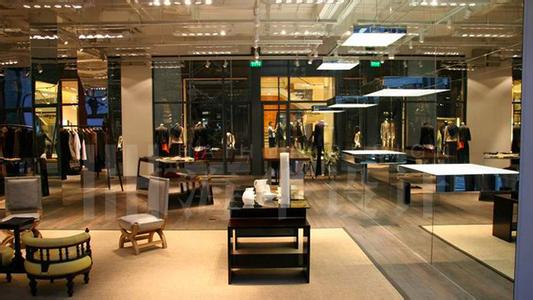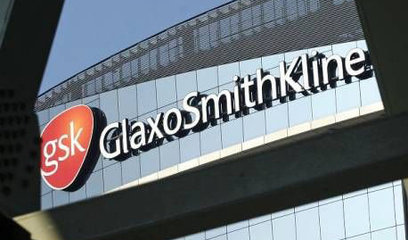Foreign companies are facing a lot of problem in China to make profits and a competitive environment.
Retail is confronting a momentous issue that nobody appears to need to discuss. It’s that the whole monetary model of income and productivity for retailers and the providers they work with is falling under its own particular weight and soon will not work anymore.

Some portion of the issue comes from the proceeded with inescapability of online retail. Worldwide web based business expanded by 19 percent in 2013 alone, an assume that was likely equalled or bettered in 2014. With those sorts of products, it’s completely likely that upwards of 30 percent or a greater amount of the aggregate retail economy will be executed online by 2025.
Our reliance on stores to fill in as appropriation focuses for items is quickly reducing as advanced media, in all structures, turns out to be astoundingly powerful at serving our fundamental shopping and dissemination needs which, up to this point, must be satisfied by physical stores. Presently, pretty much anything we purchase can be on our doorstep in a matter of days, if not hours, by means of a bunch of web based shopping choices.
Coordinating 2016’s monetary development will be a battle
Where will China’s development originated from this year? It is probably not going to originate from fares—notwithstanding overlooking potential protectionist moves in real fare markets, nothing would essentially expand the world’s interest for Chinese merchandise. Shouldn’t something be said about cash devaluation to make trades more aggressive? That will be rapidly balanced by rising wages. Could development originate from shoppers? Will they feel adequate to expand spending another 8 to 10 percent this year? They will probably spend significantly less on purchasing property and fitting it out (in light of government activity to control costs and confine access to home loan financing) and less on autos if the present tax cut lapses. In addition, genuine compensation increments are probably going to be the most reduced since the Lehman emergency and with house costs anticipated that would be level, there won’t be a rehash of a year age’s riches impact.

10% retail development
The Chinese government detailed 10% retail development in China for 2015. While lower than in earlier years, it’s still an exceptional number, particularly contrasted and most extensive retail showcases like the US or the EU. What’s more, the number is upheld by managed certainty among Chinese shoppers.
Limited market access regulation from Chinese government
China’s administration has constantly made life troublesome for firms in a few areas—it has limited market access for remote banks and financier houses and blocked web firms, including Facebook and Twitter—yet the intense treatment is by all accounts spreading. Equipment firms, for example, Cisco, IBM and Qualcomm are confronting a post-Snowden backfire; GlaxoSmithKline, a drug maker, is captured in a defilement test; Apple was constrained into a mortifying conciliatory sentiment a year ago to offer deficient guarantees; and Starbucks has been blamed by state media for cost gouging.
source SMCP
Rivalry iswarming up. China was at that point the world’s fiercest battleground for worldwide brands however nearby firms, long slow pokes in quality, are joining the shred. Many now have abroad involvement, and some are creating imaginative items. Xiaomi and Huawei have thought of world-class cell phones, and Sany’s amazing diggers are going up against costlier ones made by Hitachi and Caterpillar.
Financial specialists no longer praise firms with huge interests in China. Our Sino dependency Index weights American multinationals by their China incomes. Sino-subordinate firms used to beat their associates, however in the previous two years their share costs have done more terrible than others’.
The unity of china is not last long
To begin with, increasing costs imply that supervisors must move from going for development to upgrading profitability. This sounds self-evident, yet in China the mindset has for quite some time been “simply toss more men at the issue”. One approach to get it together on expenses is to put resources in the process of childbirth substituting innovation, in assembling as well as in administrations. Additionally, multinationals are falling behind neighbourhood firms like Alibaba and Tencent in abusing a surge of huge information originating from internet business and cell phones.
Second, more tightly control is another must. GSK’s managers in London conceded that its issues in China were halfway the after-effect of officials acting “outside of our procedures and control”. Directors in central command must guarantee that officials’ conduct and security principles are as high as anyplace else on the planet. Chinese buyers are much more dynamic via web-based networking media than those in the West, so any embarrassment is in a split second communicate broadly.
Finally, a One China approach no longer bodes well. Most firms set up their neighborhood workplaces when China’s economy was littler than $2 trillion. In spite of the fact that it will soon be five circumstances that size, many still attempt to run their operations from Shanghai. That has neither rhyme nor reason when tastes in nourishment, meld and much else fluctuate amongst regions and umber urban communities that have populaces as large as European nations.

We should or should not overlook that China has still observed extremely noteworthy development of physical retail space?
All in all, why do numerous physical retailers battle in China and what would they be able to do to change this?
Additionally, we should not overlook that China has still observed extremely noteworthy development of physical retail space. Retail establishments and hypermarkets have been adversely affected by this pattern as customers today frequently want to purchase at shopping centres and master retailers.
Here are a couple ways physical retailers can recover beneficial development in China:
Format restoration
Smaller retail arrangements are the name of the diversion and all retailers are critically investigating planning those to address Chinese purchasers’ requirement for comfort and to lift store efficiency.
Re-purposing property
To give a shopping background that is custom fitted to the necessities of China’s inexorably requesting purchasers searching for premium shopping encounters, a noteworthy redesign of retail space is required. This remains constant for retail chains and in addition for shopping centres and hypermarkets.
O2O
While the expression “O2O” may feel over-utilized, it is basic. Driving store activity from “online to disconnected” and changing over deals from “disconnected to on the web” should be a piece of each retail idea today. For a few retailers, the target might be to drive deals, for others it might be about client encounter, and for others it might be about after-deals.
Efficiencies
China is no longer an ease showcase: compensation and lease increments have prompted to excessively high cost positions for retailers. In the event that they haven’t as of now begun, right now is an ideal opportunity for retailers to investigate approaches to drive more noteworthy proficiency so they can recover their aggressive edge and re-establish benefit.
Further Reading:
- Australian Business in China
- Social Media Businesses in China
- New Brand in China
- Branding is everything in China
- Business is online in China
- US Chinese Business

